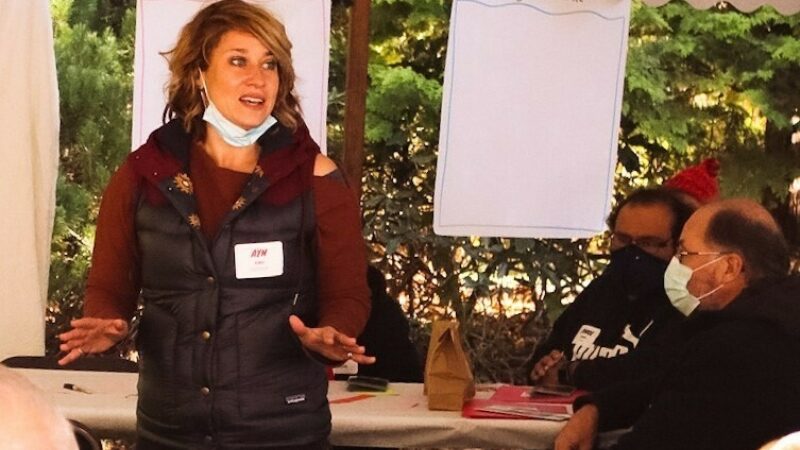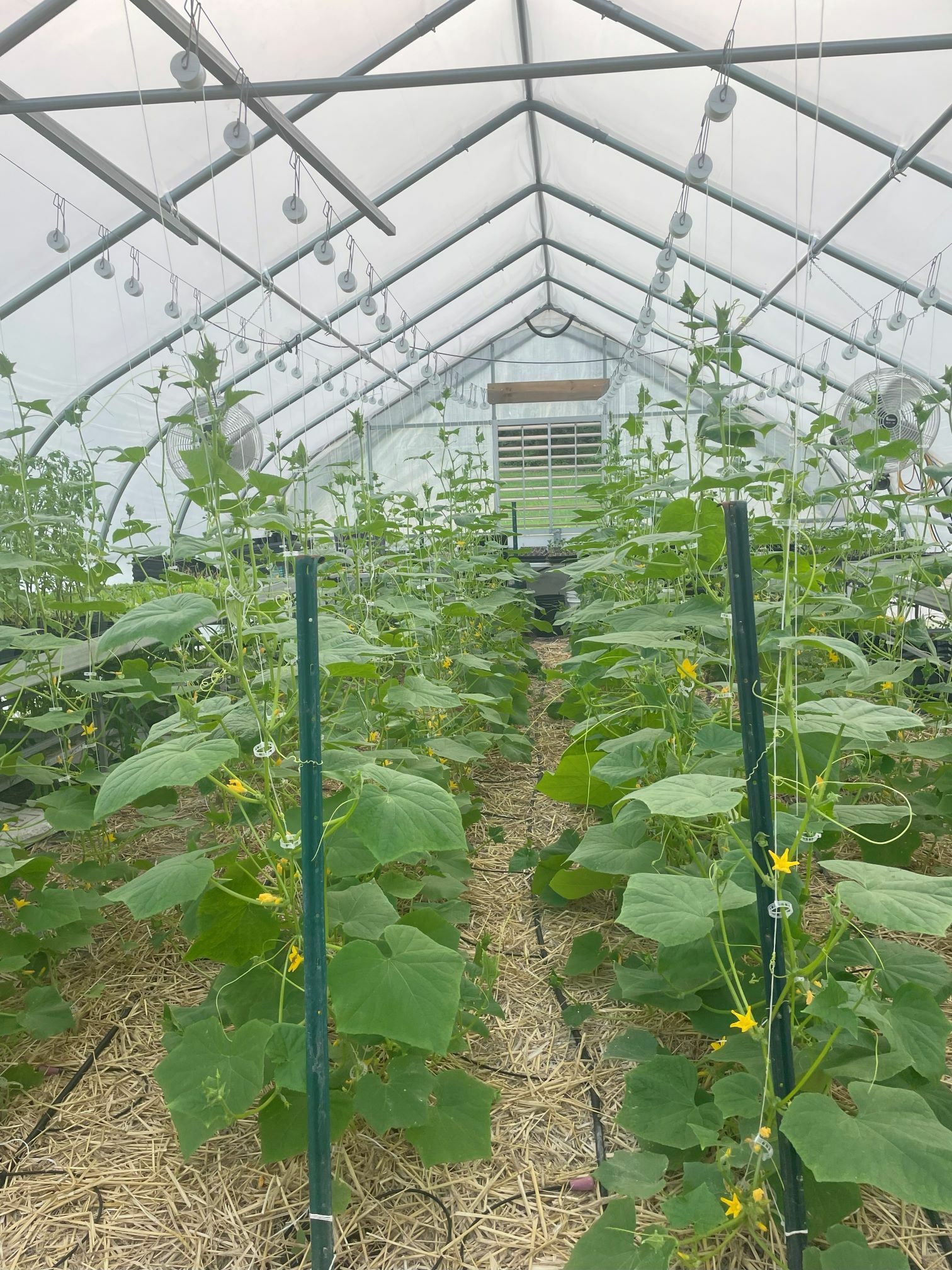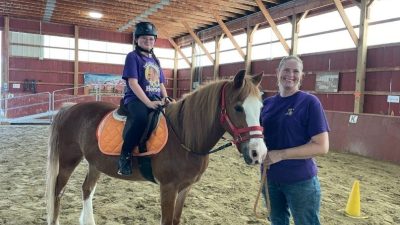
Reshaping the broken food system
The effort to bring fresh produce to a food desert in Winchendon has grown into an initiative to strengthen the connection between locally grown food and families in towns across North Central Massachusetts. It has been fueled by the energy and ingenuity of local nonprofits, farmers, community leaders, and COVID relief funds directed by the Community Foundation of North Central Massachusetts.
Growing Places Executive Director Ayn Yeagle has been leading the Winchendon project that initiated pre-COVID when the grocery store in town closed down. “We are the backbone and make sure the pieces are all coordinated together, and we bring in resources for it so that we can scale and grow it with an equity lens,” Yeagle said of the Winchendon Food Works.
When they realized getting a grocery store chain to open a location in Winchendon “wouldn’t work in this small community,” Yeagle said they decided as a group to look “more holistically at the food system. That is when we started to look deeper at the issue of food insecurity and started to look at farms. We talked to farmers, who said they could scale up but there is no one to connect us to wholesale institutions.”
“As important it is to make sure residents have access to healthy food, we have untapped agricultural resources that are not being fully utilized,” she expressed. “We want to make sure it’s not only food that comes from local farms but also that the process benefits the farmers and economy and has a multiplier effect.”
Boosting local capacity
When the pandemic hit and the state gave the Community Foundation $1.7 million in federal dollars to support food insecurity, the Community Foundation decided to focus on expanding the Winchendon project.
“The food system project was an ideal way to convert this one-time influx of federal dollars into a lasting positive change to the food system here,” said Stephen Adams, president of the Community Foundation. “Growing Places and Local Food Works had a well-developed plan they were already implementing. It was a no-brainer to help expand the effort to more communities.”
The Community Foundation funding helped local farmers expand their growing capacity with the purchase of high tunnels, tractors, fencing and other basic agricultural infrastructure. In return, the farmers agreed to assure that at least 51% of the expanded production would be available to low and moderate-income families.
But the key to a better food system in the region is a processing and distribution hub. With the COVID funds, Growing Places is establishing a hub in an unused school building in Gardner that will process the food so that it’s more ready-to-eat for consumers, linking both ends of the food chain by helping farmers manage the supply of fresh produce and making it easier for consumers to include it in their daily menus.
The size of the COVID aid allowed a three-part approach to food security. First, provide support to emergency food providers such as food pantries and give them the equipment “to shore up immediate needs, such as refrigeration or delivery. Support that immediately,” Yeagle said.
The second phase involved working with the farmers and the timing of getting funding to them so that they can “scale up before the growing season.”
Regional Food Center
The final phase is getting the fresh, healthy food processed and distributed to the consumers, institutions, senior centers in the region, and community focused organizations such as Seven Hills Foundation and Boys & Girls Club of Fitchburg and Leominster. Ths involves equipping and operating a regional food center to aggregate and distribute fresh produce.
“This [Community Foundation COVID] funding was the catalyst in order to create the infrastructure that is needed to create a working food structure in this area and bring partners together,” Yeagle shared. “The grant focus area has exponentially leveraged those dollars with everyone working together, which is such a strategic and smart way of investing in food security. All the assessment and planning of the last three years have come to fruition.”




